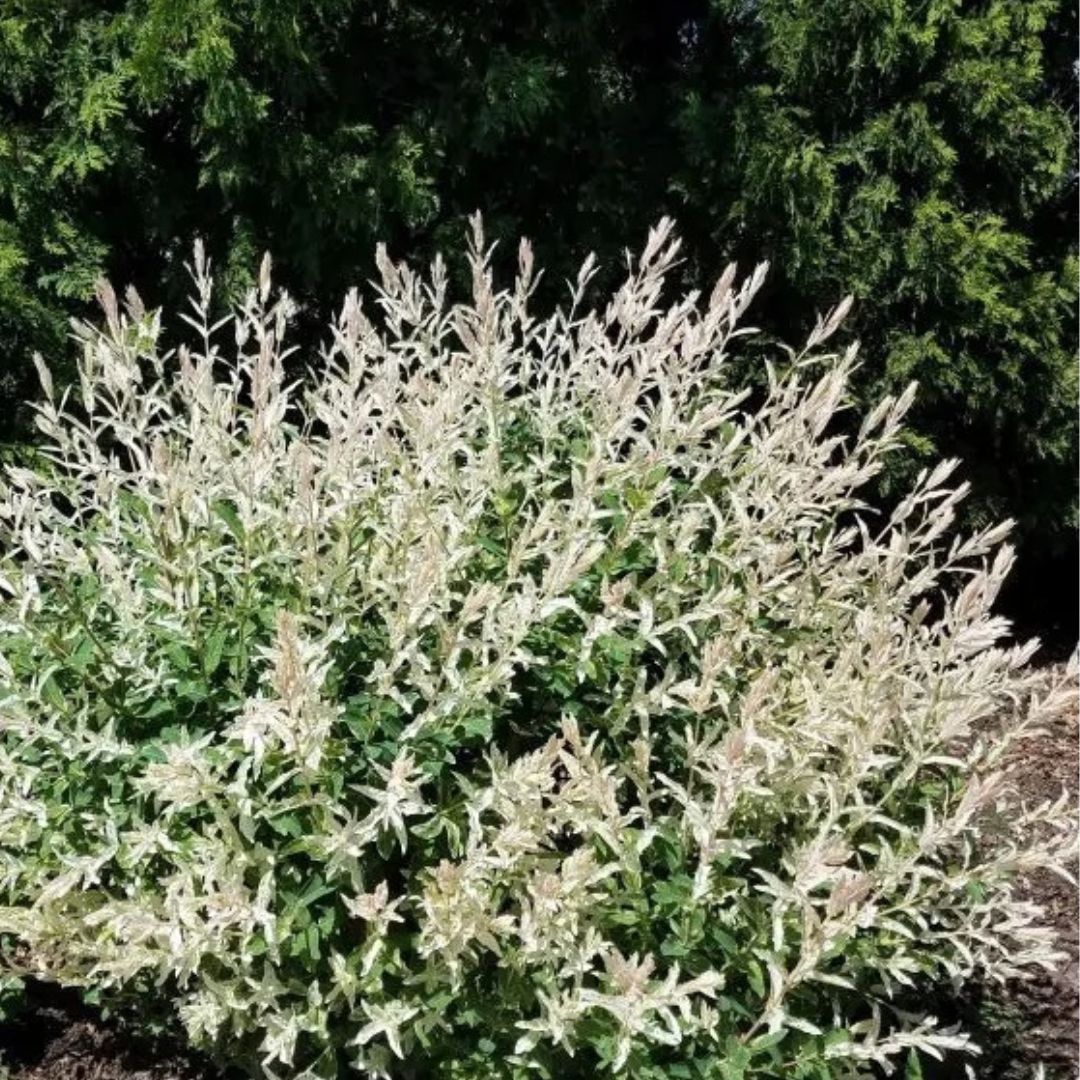





Product page > Variant picker block.Dappled Willow, (Salix integra 'Hakuro Nishiki') produces amazing leaves that are variegated when they are young. In fact, it's also known as Variegated Willow. Dappled Willows have a nice fine texture and loose and slightly weeping form, if left unpruned. It is one of the smaller members of the willow family, grown as a small tree form or large shrub.
Grows in zones 4-9 reaching 4-6' both tall and wide.
Plant your willow in full sun to partial shade (any area with about 4 to 8 hours of sunlight per day), select a site with well-drained soil. Thinning the crown increases air circulation, which pushes wind through the tree and helps prevent disease. A good rule of thumb is to prune 2 inches between branches at the top of the tree during early spring, before new growth emerges.
According to Wikipedia , willows (in both Europe and North America) contain salicin, which, when metabolized, turns into salicylic acid - which is toxic to cats. Deer, squirrels, and birds like to eat the branches of willows.
Plant size and shape may differ from what is pictured.
For mail orders: Plants may go through shock during shipping. Upon arrival, take the plant out and water it thoroughly. If you are not satisfied with your purchase, please notify us via email at sales@amgardens.com and include a photo(s) within 24 hours of plant arrival.
For in store purchases: If you are not satisfied with your purchase, please call us at 423-870-5000 or return the plant in its original pot/condition within 3 days. Trees and shrubs have a 1 year warranty (exceptions may apply), but we highly encourage you to give us a call or email if you notice issues with your plant. We'd love to help you figure out what's wrong and save your plant!
Orders are shipped on Wednesdays and Thursdays; if your order is placed on a Wednesday, it may not ship until the following Wednesday. During peak season there may be delays in shipping. If it is too hot or cold, we suggest ordering during milder months to ensure plants arrive in best condition.